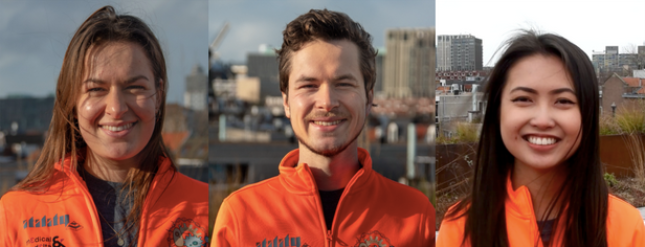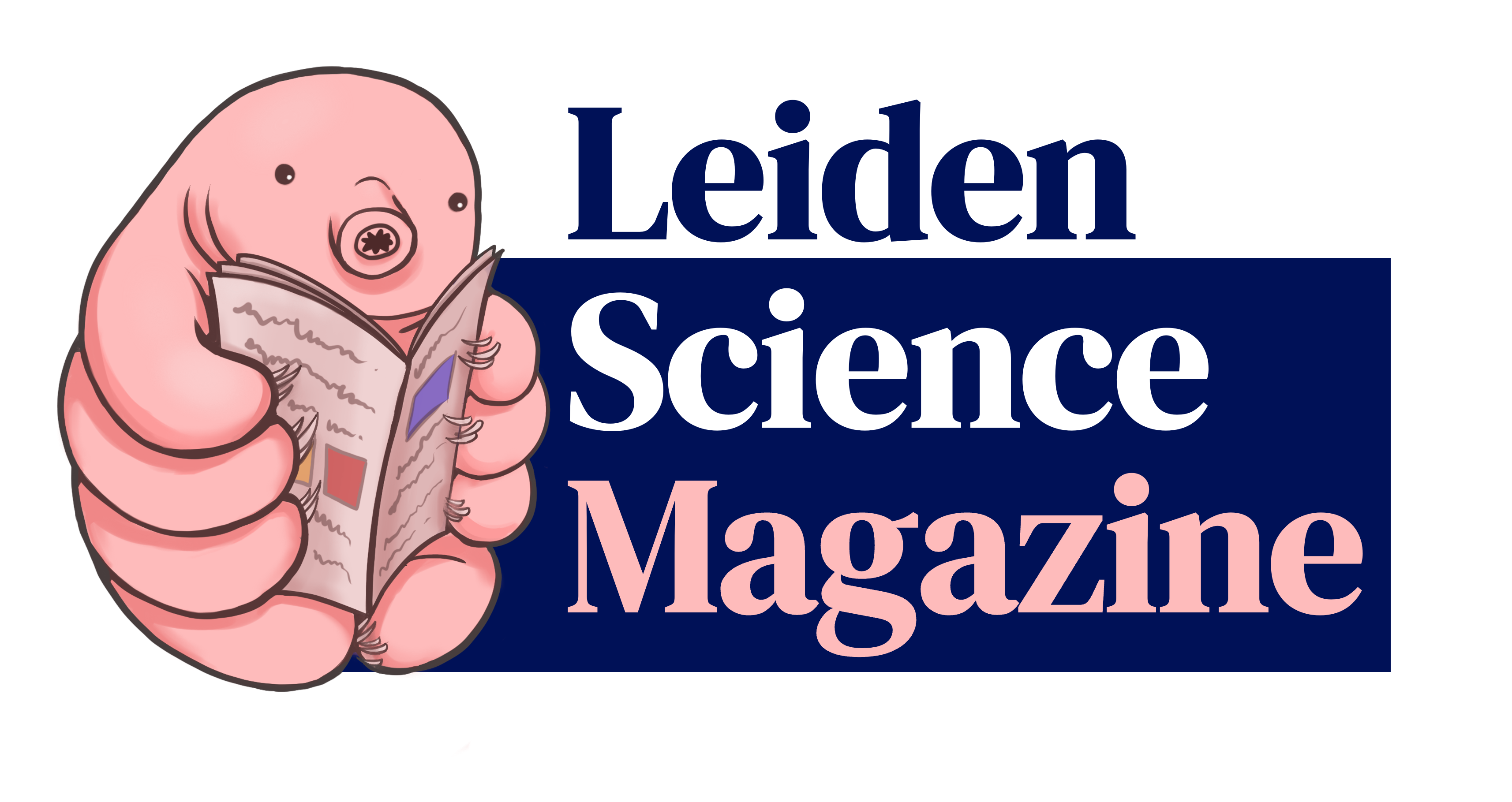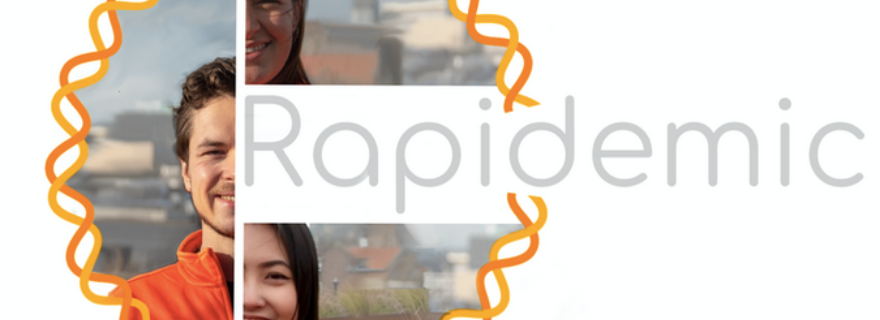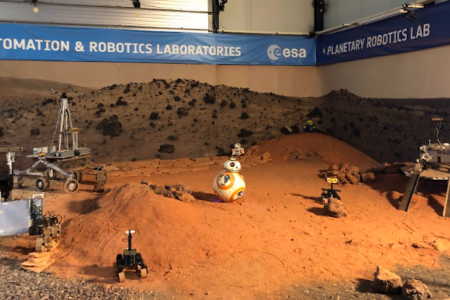Rapidemic - Tapping into Leiden’s entrepreneurial ecosystem
How do you strive and survive in the competitive world of entrepeneurship? Editor Gabrielle Aisa Bonoko finds answers from the Rapidemic-team, winners of iGEM 2020.
It was January 2020 when a group of Leiden students first gathered to take part in the International Genetically Engineered Machine (iGEM) competition, the world’s largest synthetic biology competition. During iGEM, students worldwide compete by coming up with projects that aim to tackle local and global issues. Today, months after winning the competition, I discuss their product, an equipment free diagnostic test kit. Currently, this tool is being developed as part of a start-up, known as Rapidemic, founded by Leiden students Violette Defourt, Eugene Golov, and Lucy Chong. Through my interview with Violette and Eugene, I was able to get an insight into their experience setting up Rapidemic, the challenges they faced, and where they are now.
As part of the iGEM 2020 competition, Leiden students from all backgrounds and experiences first get together for a brainstorm session, where they are encouraged to think outside the box. Violette recalls this moment, describing how, for the first few weeks, they read research papers, troubleshooted and refined their ideas as part of a team effort. Afterwards, in a symposium, the group pitched their ideas from a scientific perspective to their advisors and supervisors.
That’s when Rapidemic was born, the core of the student project, but also the basis for the start-up they are managing today.
In an interview, Violette Defourt, team lead at Rapidemic, remembers this as their proud moment. “We managed to pitch our idea very nicely to the team. We eventually developed our initial idea of a diagnostic test for pandemic preparedness”. Successfully so, the idea proved worthy as the iGEM team ended up winning the competition.

What is Rapidemic?
After the end of the competition, three students decided to take this project forward, including Violette Defourt, a Biomedical Sciences MSc student, Eugene Golov, a Life sciences & Technology BSc student, and Lucy Chong, BSc Pharmaceutical sciences. The Rapidemic project then slowly became a commercial endeavour; the team is now working full-time on its further development. But you may wonder, how does this test kit work? And what makes it so special?
The technology behind Rapidemic, which was first developed during iGEM, consists of three consecutive reactions, as explained by Violette. “In the first step, specially-designed primers specifically bind a target sequence in a genome, which is then amplified by using a commercially available amplification kit. This is followed by a second amplification step in which a nicking enzyme, known as nickase, recognizes a specific sequence in the amplicon. This nickase makes a single stranded cut in the top strand, releasing a small piece of single stranded DNA (ssDNA). In the third step, the ssDNA, which is also a DNAzyme folds around a cofactor to acquire the capacity to oxidise a substrate. This last reaction triggers a color change which indicates that the specific genome sequence is present.” Put simply, the test kit can quickly tell you whether or not a virus is present in your airways.
Eugene Golov, Chief Financial Officer at Rapidemic, highlights that their technology can be implemented in many different areas. “We think that the strongest value is that since we’re building an equipment-free technique (it doesn’t require laboratory equipment) we can apply it in low resource areas, where laboratories aren’t available.”
From this interview it has become evident that the Rapidemic test kit is a very adaptable tool with many possibilities. Apart from its use for diagnostics, Violette argues its purpose is “not set-in-stone”. “I think we keep the options open and also explore other opportunities such as detection kits for Salmonella, even on an industrial scale, for example”. However, currently, the Rapidemic test kit aims to meet potential solutions to more pressing issues, namely to those in healthcare. Its adaptable nature makes the test kit perfect for diagnosing respiratory infections such as Influenza and Covid-19.
Paving the way towards commercialization
Despite its promising future, Rapidemic is still in its early stages. After winning the iGEM prize, one of the first hurdles the team had to overcome was finding a lab where they could continue their scientific developments. Violette mentions how at one point, in the midst of Covid-19, they were left in limbo due to a lack of available lab spaces. “We were working within the university, but due to Covid they didn’t have enough space available. The CEO of the company BaseClear had seen us pitch at the Gulliver competition in Leiden. When we turned to him to ask for help, he was so kind as to support us.”
Violette describes the next steps as exciting but also quite stressful: “It seems like you have got a mountain of work in front of you, but you have to try to break it down for yourself, otherwise you go crazy! You have to be very critical of what you’ve done so far, think about what you have and what you still have to validate.”
Here, Violette and Eugene both stress the value of tapping into the resources around you and building a network, a key factor in building a startup. As mentioned by Eugene, the team had a lot of support from the resources available in Leiden, including PLNT, the new incubator, Unlock, and evidently the BioScience park. For other students looking to commercialize their research, the team stresses a critical first step – “reach out to people in the ecosystem. Have an environment for your ideas because you can’t do it all on your own''. By building a network of mentors, the Rapidemic team has been able to obtain advice on grant writing, mentoring for their business and product development, and has, most importantly, been able to attract investors.
Main takeaways
All in all, the team describes their experience as an exciting and worthy endeavour that they would recommend to any entrepreneur-minded student. Nevertheless, this experience has been, and still is, a challenging endeavor for the team. Eugene explains how “the crucial difference is that when you’re in university, it’s about fundamental knowledge and in a startup it's more about shaping this science to the market. So, you have to be a lot more critical about the solutions to the problem that you’re aiming to tackle”.
In my opinion, this presents a clear example of how there is an increasing trend towards the blurring of the barrier between academia and industry. We are seeing that ideas that were created from research in university are more often commercialized. Available resources such as the PLNT incubation center and events such as the iGEM competition facilitate this trend. They foster an environment where we as students are encouraged to think outside the box, on how specific know-how could be applied for the betterment of societal issues.
If you’re interested in Rapidemic or would like to do a research or management internship at this start-up, reach out at info@Rapidemic.com.
References:
Unlock is an incubator programme which gives students support in beginning their start up in the form of mentorship and classes. Link: https://unlock.bio/
PLNT - https://plnt.nl/
iGEM - https://igem.org/Competition
Rapidemic - https://www.rapidemic.com/
Gulliver competition - https://gulliver.nl/competition/
Science meets Business Leiden - https://www.sciencemeetsbusiness.nl/about
De weg naar commercialisering
Ondanks de veelbelovende toekomst staat Rapidemic nog in de kinderschoenen. Na het winnen van de iGEM-prijs was een van de eerste hindernissen die het team moest overwinnen het vinden van een laboratorium waar ze hun onderzoek konden voortzetten. Violette vertelt hoe ze op een gegeven moment, midden in coronatijd, opeens zonder werkplek kwamen te zitten vanwege een gebrek aan beschikbare laboratoriumruimte. “We werkten binnen de universiteit, maar door Covid was er niet genoeg ruimte beschikbaar. De CEO van het bedrijf BaseClear had ons zien pitchen op de Gulliver competitie in Leiden. Toen we hem om hulp vroegen, was hij zo vriendelijk om ons te steunen.”
Violette beschrijft de volgende stappen als spannend maar ook best stressvol: “Het lijkt alsof je een berg aan werk voor de boeg hebt, maar je moet proberen om het voor jezelf in stukjes te breken, anders word je gek! Je moet heel kritisch zijn op wat je tot nu toe hebt gedaan, nadenken over wat je hebt en wat je nog moet valideren.”
Hier benadrukken Violette en Eugene allebei de waarde van het gebruik maken van je omgeving en het opbouwen van een netwerk, een essentiële factor voor het opzetten van een startup. Zoals Eugene aangaf, had het team veel steun van de beschikbare middelen in Leiden, waaronder PLNT, de nieuwe incubator, Unlock, en uiteraard het Bio Science Park. Voor andere studenten die hun onderzoek willen commercialiseren, benadrukt het team een cruciale eerste stap: "mensen in het ecosysteem bereiken. Zorg voor een omgeving voor je ideeën, want je kunt het niet alleen''. Door een netwerk van mentoren op te bouwen, heeft het Rapidemic-team advies kunnen inwinnen over het schrijven van subsidies, mentorschap voor hun bedrijf en productontwikkeling en, belangrijker nog, het aantrekken van investeerders.
Geleerde lessen
Al met al beschrijft het team hun ervaring als een waardige onderneming die ze zouden aanbevelen aan elke ondernemende student. Desondanks was en is deze ervaring een uitdaging voor het team. Eugene legt uit, "het cruciale verschil is dat het op de universiteit om fundamentele kennis gaat en bij een startup veel meer om het vormgeven van deze wetenschap naar de markt. Je moet dus veel kritischer zijn over de oplossingen voor het probleem dat je wil aanpakken.”
Naar mijn mening is dit een duidelijk voorbeeld van hoe er een toenemende trend is naar de vervaging van de barrière tussen de academische wereld en het bedrijfsleven. We zien dat ideeën die voortkomen uit onderzoek aan de universiteit vaker worden gecommercialiseerd. Beschikbare middelen zoals het PLNT-incubatiecentrum en evenementen zoals de iGEM-competitie faciliteren deze trend. Ze bevorderen een omgeving waarin wij als studenten worden aangemoedigd om buiten de gebaande paden te denken, over hoe specifieke know-how kan worden toegepast voor de verbetering van maatschappelijke problemen.
Als je geïnteresseerd bent in Rapidemic of mogelijk een onderzoeks- of managementstage bij deze start-up wilt doen, neem dan contact op via info@Rapidemic.com
References
Unlock is an incubator programme which gives students support in beginning their start up in the form of mentorship and classes. Link: https://unlock.bio/
PLNT - https://plnt.nl/
iGEM - https://igem.org/Competition
Rapidemic - https://www.rapidemic.com/
Gulliver competition - https://gulliver.nl/competition/
Science meets Business Leiden - https://www.sciencemeetsbusiness.nl/about






0 Comments
Add a comment